Magical PowersThe Christmas Market
Night falls on wintery Dresden where the hustle and bustle of the Christmas market slowly dies down. While the marketeers put their exotic goods away and the last visitors stroll across the square in joyful anticipation of Christmas, mysterious Drosselmeier appears and introduces his magic world …
Fantastic Presents
The Party
The Stahlbaum family is busy decorating their Christmas tree, in preparation for the festivities. The children of the family - Luise, Fritz and Marie - are excited beyond all bounds. Finally they are allowed to enter the parlour, where the presents will be distributed, together with the family’s guests. Showered with presents, the children begin to play; the girls cuddle their dolls, the boys try out their new musical instruments – until suddenly the last guest appears: Drosselmeier.
The gentleman is beset with something weird, something that awes the children and at the same time arouses their curiosity, because Drosselmeier always gives them the most wonderful presents. Luise is given a marzipan castle, Fritz a spooky Mouse King with seven crowned heads. Marie, the youngest daughter, is given a Nutcracker which immediately enchants her.
Drosselmeier’s biggest surprise is two dolls the size of children, Sugar Fairy and her husband. They start dancing at his command just like two other figures of the same size – Nutcracker and Mouse King.
Drosselmeier then turns his attention to Marie and shows her how to crack nuts with her Nutcracker. Joy, however, does not last for long: Fritz maltreats his wooden fellow whose broken jaw needs to be dressed by Marie and Drosselmeier.
The party ends after several dances. The guests bid goodbye and the Stahlbaum children go to bed. Only Drosselmeier seems to have something in mind …
Fierce Battle
The Transformation
Just before midnight Marie sneaks back into the parlour in order to look for her Nutcracker. She is almost scared to death when she discovers a mouse of about her own size. She also thinks that she sees Drosselmeier sitting on the grandfather clock, a place usually taken by an owl.
More and more mice are filling the room and when Marie tries to escape, she hurts herself on the glass cabinet and faints, holding her Nutcracker in her arm. In an attempt to protect her, Drosselmeier carries the child to the sofa and examines the nutcracker whose chin seems to have healed.
All of a sudden everything in the parlour starts to grow, the Christmas tree, the sofa, the glass cabinet. But also Marie is growing. The small child actually turns into a young woman – she can hardly believe what is happening to her.
The presents too, Marie’s Nutcracker and her brother Fritz’s Mouse King become life size, come to life and confront each other in a hostile manner and ready for a fight. Nutcracker gathers his troops from the toy soldiers which have come to life in the glass cabinet where Fritz had kept them. The army is confronted by an army of mice led by the Mouse King. A fierce battle begins. When Mouse King seems to prevail, Marie intervenes and assures Nutcracker’s victory. In a wondrous way he is transformed into a young Prince.
Young Love
The Magic Winter-Wood
Marie and her Prince see how the world dissolves around them and find themselves in a snow-covered mysterious winter wood. Drosselmeier leaves the two alone who are united in tender love. Completely exhilarated, Marie is completely entranced by this place and dances with her Prince, snowflakes and icicles. Snow Queen sends Marie and her young companion on a trip to the Land of Sweets reigned by Sugar Fairy, the Prince’s mother.
Arrival in a Dream & Longing
The Land of Sweets
At the end of their trip Marie arrives at a castle and cannot believe her eyes: all her dolls from home are alive and everything seems to be made of sweets, Spanish, French, Oriental and German treats, a feast for eyes and palate. Sugar Fairy appears with her husband and welcomes her son with Marie at his side.
The Prince tells of the battle against Mouse King and Marie’s help which saved his life. Grateful for this, Sugar Fairy, declares the couple to be the future rulers. The Prince and Marie celebrate their young love by dancing a flower waltz, followed by Sugar Fairy and her husband who demonstrate their noblesse and elegance with a grand pas de deux. The sojourn does not last forever, Marie and her Prince must leave the Land of Sweets again …
Awakening and Knowing
The Parlour
Looking for Marie whose was empty, the mother finds her daughter asleep on the sofa in the parlour – holding her wooden Nutcracker in her arm. Marie awakes, at first slightly confused but, despite her mother’s doubts, is certain that she experienced last night’s adventures. And she has proof …
Unnoticed by anyone, somebody is watching over the scene with a sparkle in his eyes from his place on the grandfather clock: Drosselmeier.
Plot
Below is a synopsis based on the original 1892 libretto by Marius Petipa. The story varies from production to production, though most follow the basic outline. The names of the characters also vary. In the original E. T. A. Hoffmann story, the young heroine is called Marie Stahlbaum and Clara (Klärchen) is her doll's name. In the adaptation by Dumas on which Petipa based his libretto, her name is Marie Silberhaus. In still other productions, such as Baryshnikov's, Clara is Clara Stahlbaum rather than Clara Silberhaus.
Act I
Scene 1: The Stahlbaum Home
It is Christmas Eve. Family and friends have gathered in the parlor to decorate the beautiful Christmas tree in preparation for the party. Once the tree is finished, the children are sent for. They stand in awe of the tree sparkling with candles and decorations.
The party begins. A march is played. Presents are given out to the children. Suddenly, as the owl-topped grandmother clock strikes eight, a mysterious figure enters the room. It is Drosselmeyer, a local councilman, magician, and Clara's godfather. He is also a talented toymaker who has brought with him gifts for the children, including four lifelike dolls who dance to the delight of all. He then has them put away for safekeeping.
Clara and Fritz are sad to see the dolls being taken away, but Drosselmeyer has yet another toy for them: a wooden nutcracker carved in the shape of a little man. The other children ignore it, but Clara immediately takes a liking to it. Fritz, however, breaks it, and Clara is heartbroken.
During the night, after everyone else has gone to bed, Clara returns to the parlor to check on her beloved nutcracker. As she reaches the little bed, the clock strikes midnight and she looks up to see Drosselmeyer perched atop it. Suddenly, mice begin to fill the room and the Christmas tree begins to grow to dizzying heights. The nutcracker also grows to life size. Clara finds herself in the midst of a battle between an army of gingerbread soldiers and the mice, led by their king. They begin to eat the soldiers.
The nutcracker appears to lead the soldiers, who are joined by tin soldiers, and by dolls who serve as doctors to carry away the wounded. As the Mouse King advances on the still-wounded nutcracker, Clara throws her slipper at him, distracting him long enough for the nutcracker to stab him.
Scene 2: A Pine Forest
The mice retreat and the nutcracker is transformed into a handsome Prince. He leads Clara through the moonlit night to a pine forest in which the snowflakes dance around them, beckoning them on to his kingdom as the first act ends.
Act II
Scene 1: The Land of Sweets
Clara and the Prince travel to the beautiful Land of Sweets, ruled by the Sugar Plum Fairy in the Prince's place until his return. He recounts for her how he had been saved from the Mouse King by Clara and transformed back into himself. In honor of the young heroine, a celebration of sweets from around the world is produced: chocolate from Spain, coffee from Arabia, tea from China, and candy canes from Russia all dance for their amusement; Danish shepherdesses perform on their flutes; Mother Ginger has her children, the Polichinelles, emerge from under her enormous hoop skirt to dance; a string of beautiful flowers perform a waltz. To conclude the night, the Sugar Plum Fairy and her Cavalier perform a dance.
A final waltz is performed by all the sweets, after which the Sugar Plum Fairy ushers Clara and the Prince down from their throne. He bows to her, she kisses Clara goodbye, and leads them to a reindeer drawn sleigh. It takes off as they wave goodbye to all the subjects who wave back.
In the original libretto, the ballet's apotheosis "represents a large beehive with flying bees, closely guarding their riches". Just like Swan Lake, there have been various alternative endings created in productions subsequent to the original.


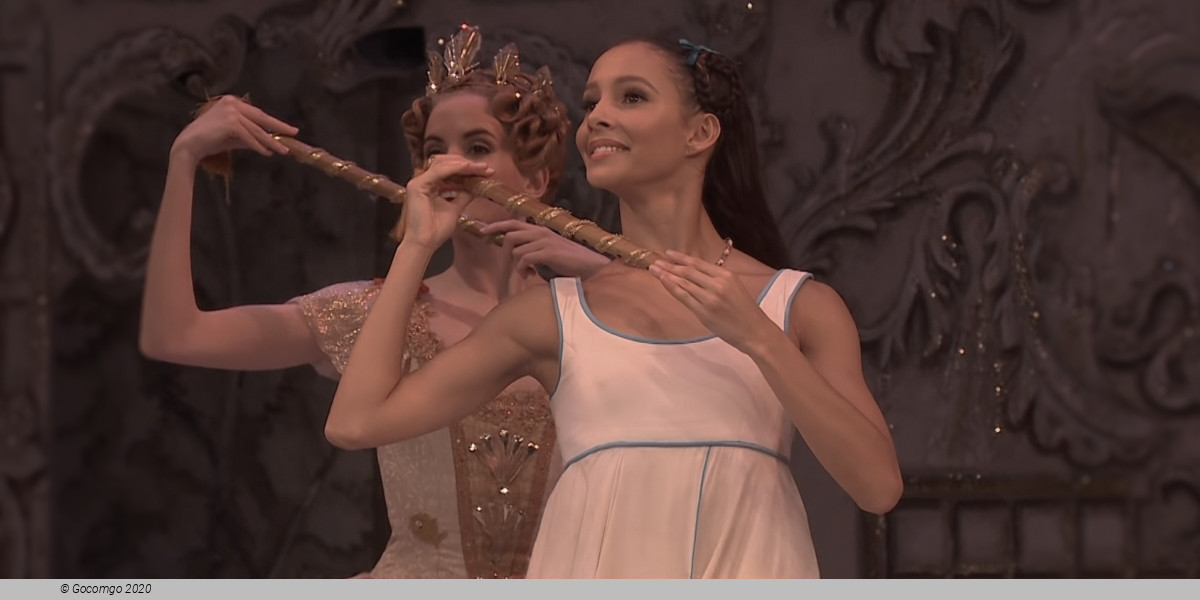
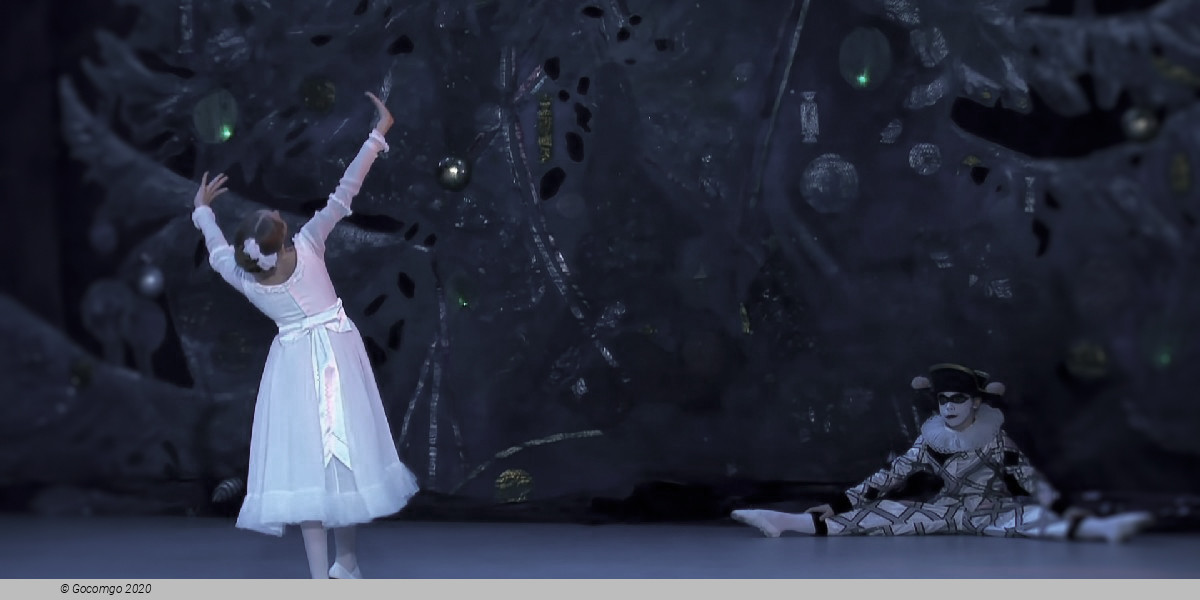
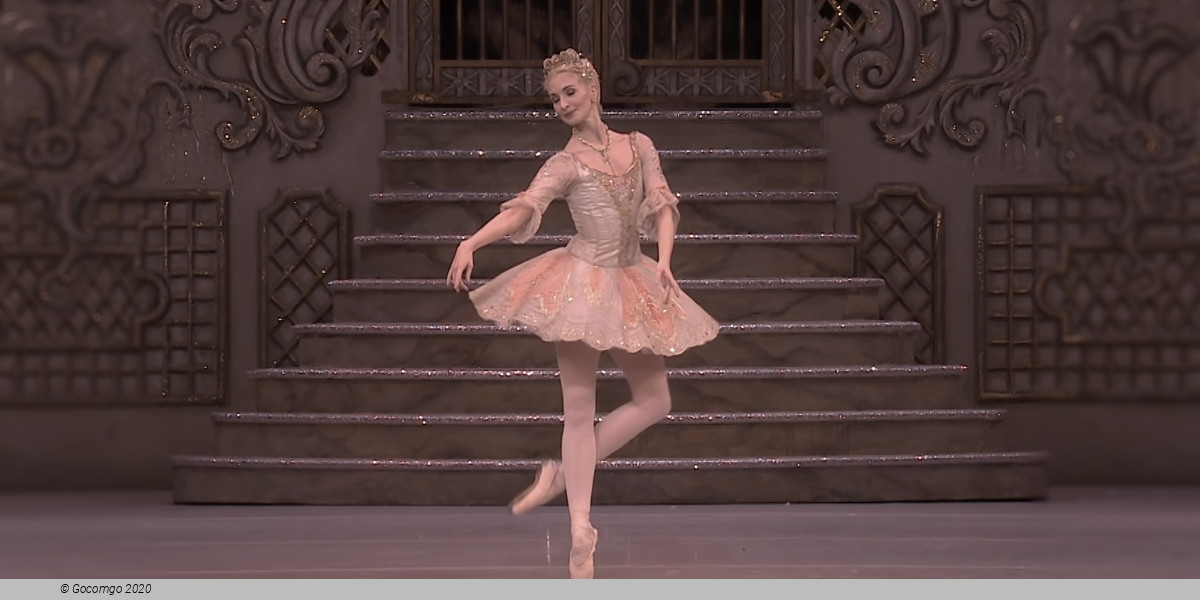
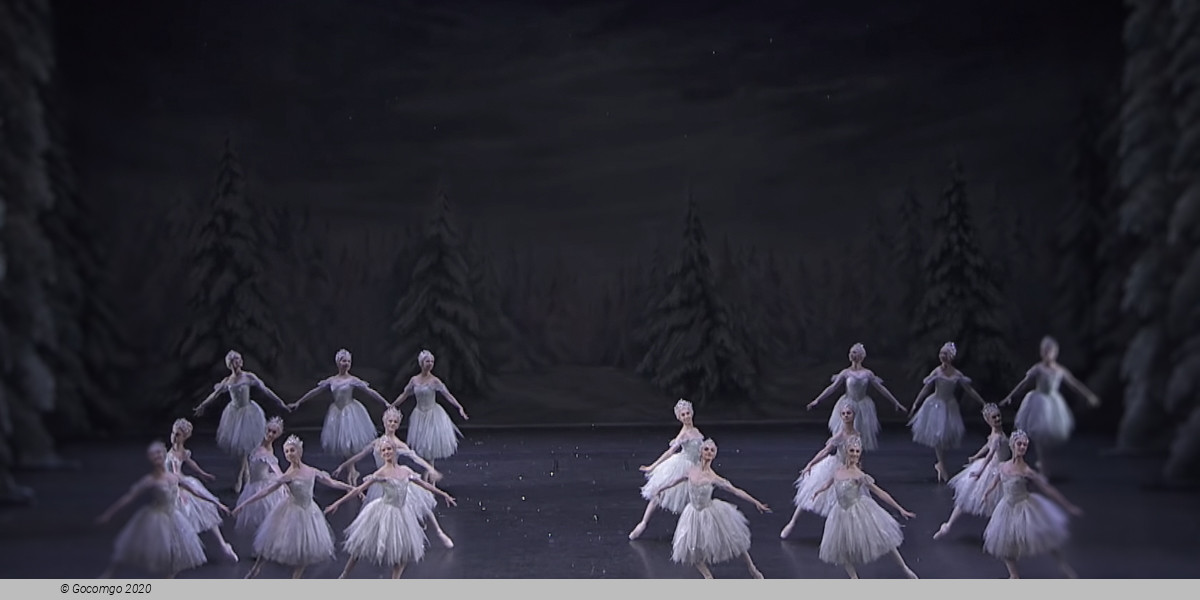
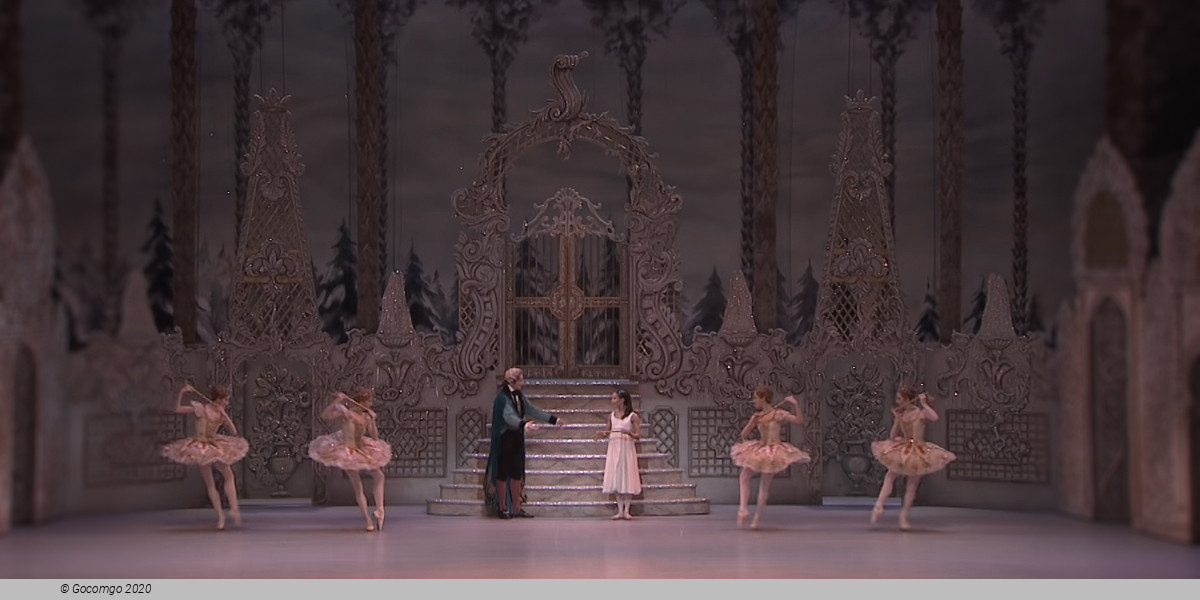
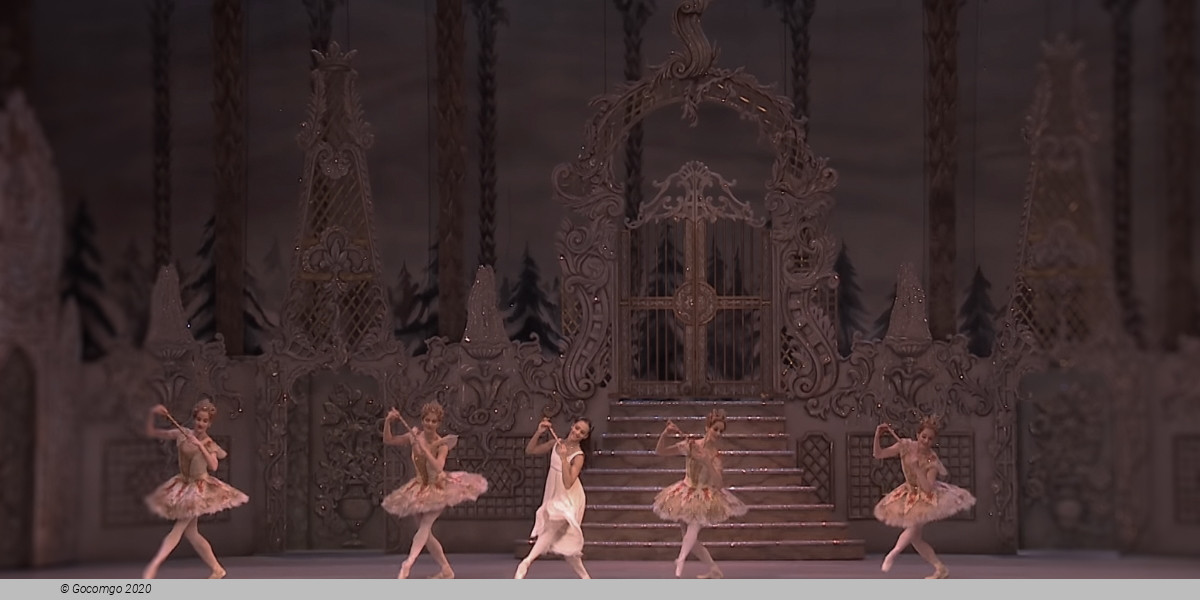
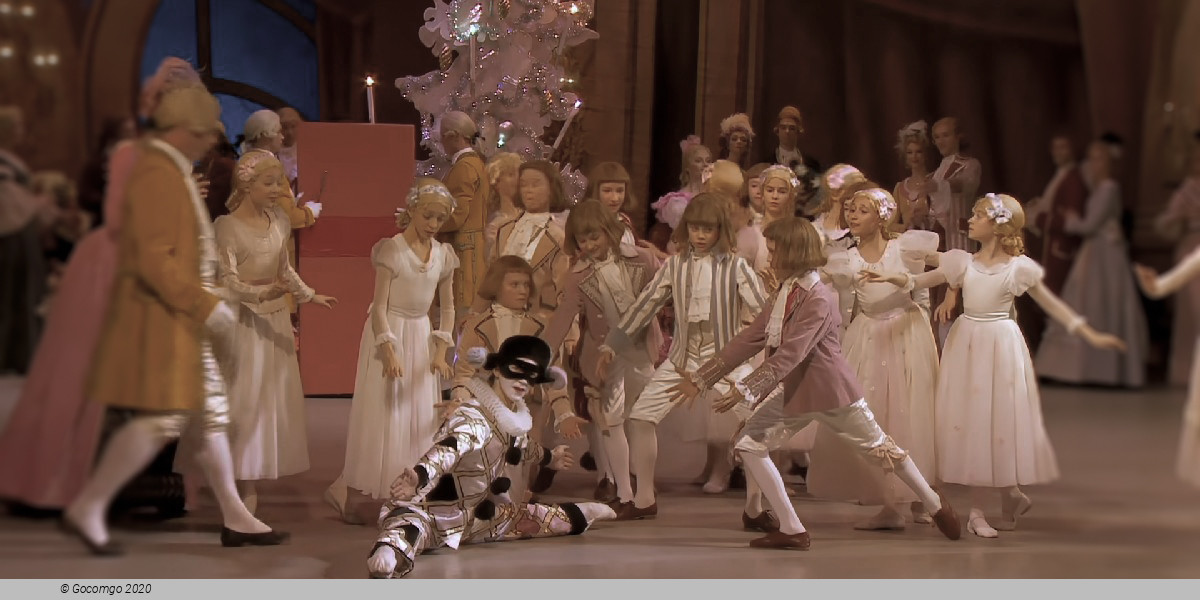
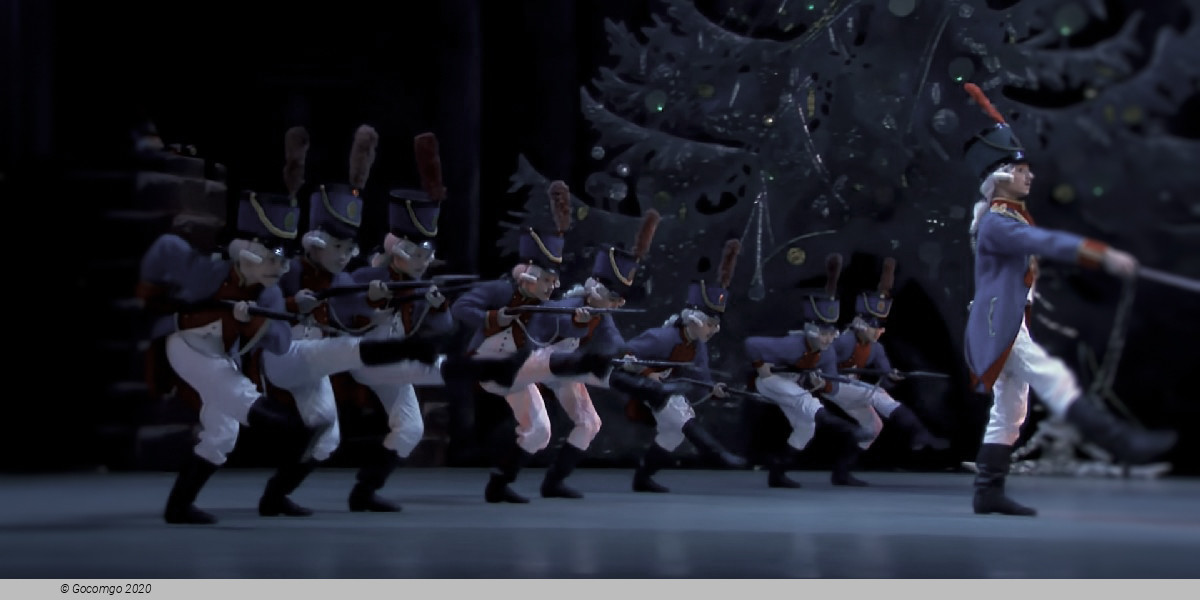
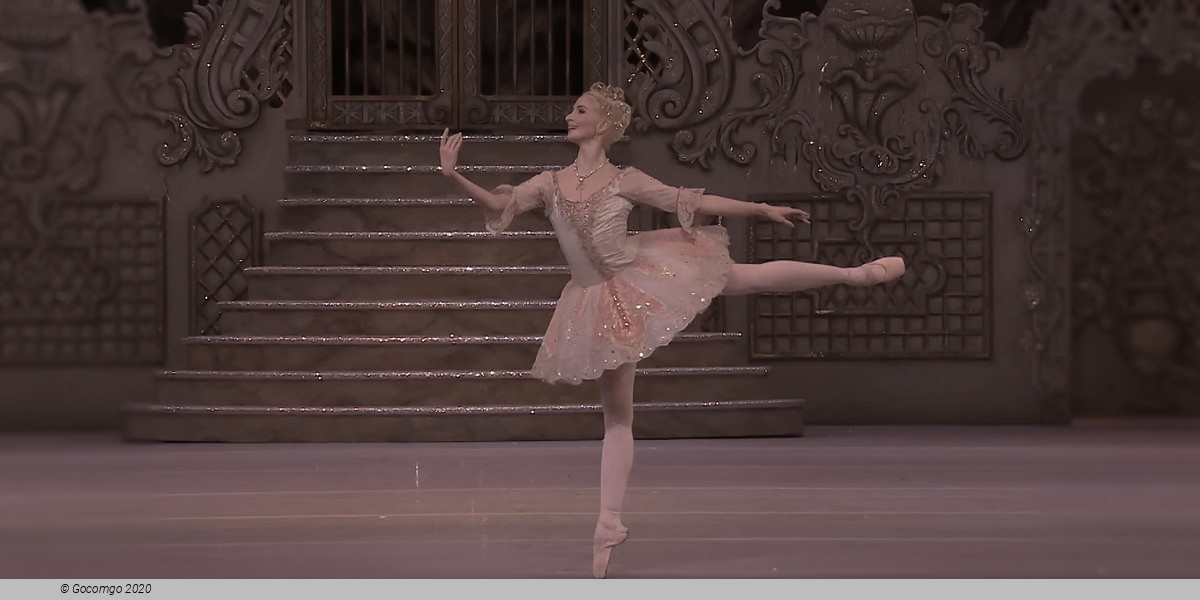
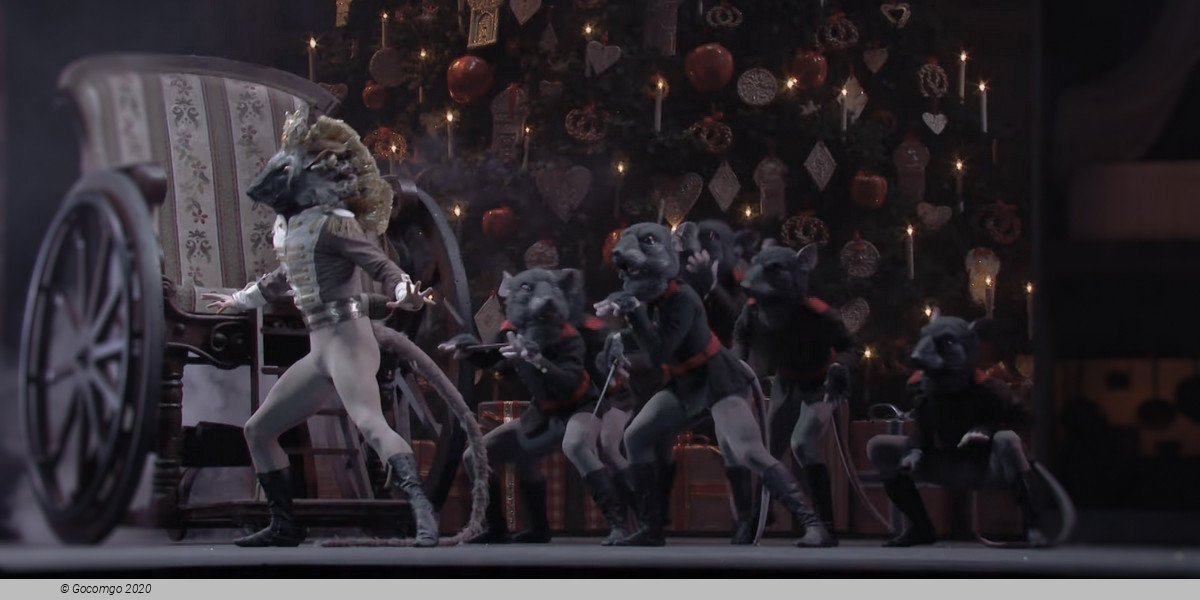
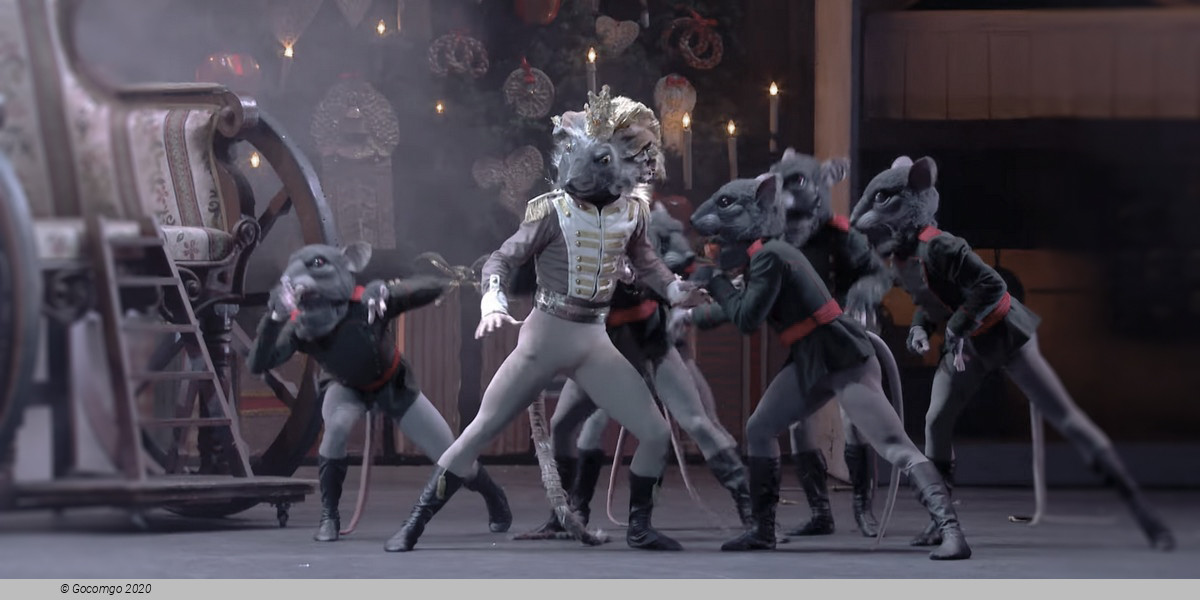
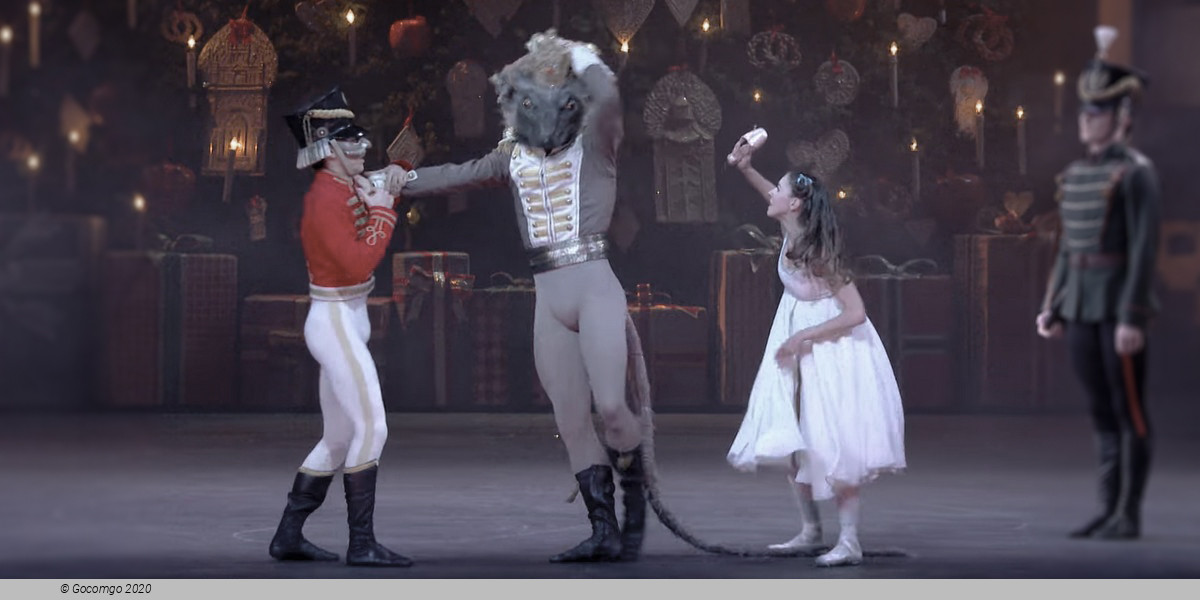
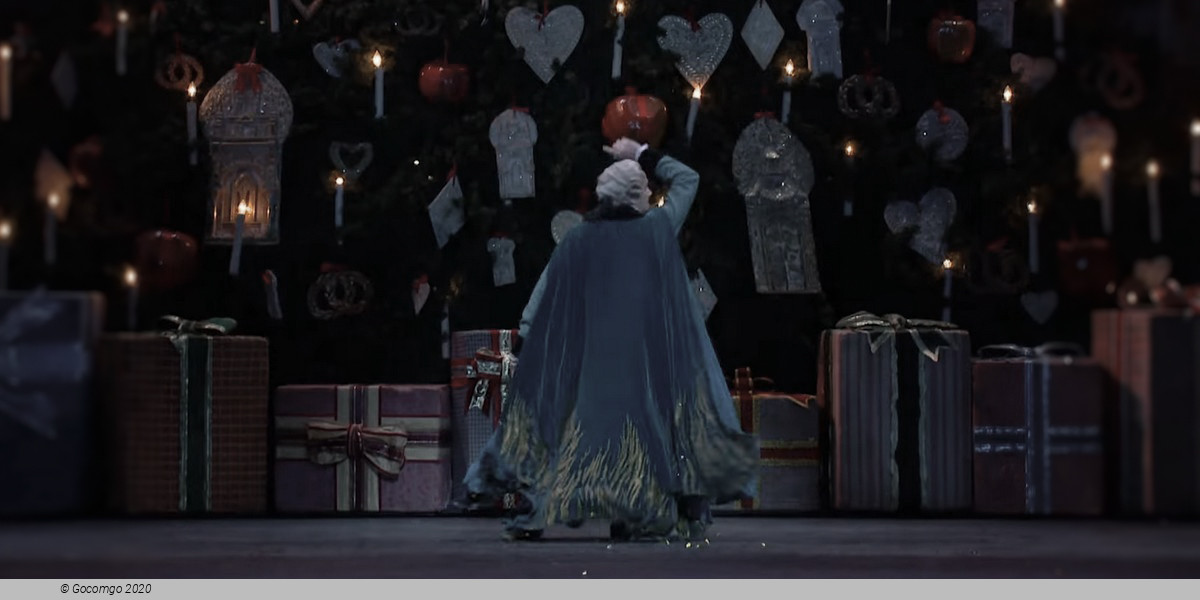
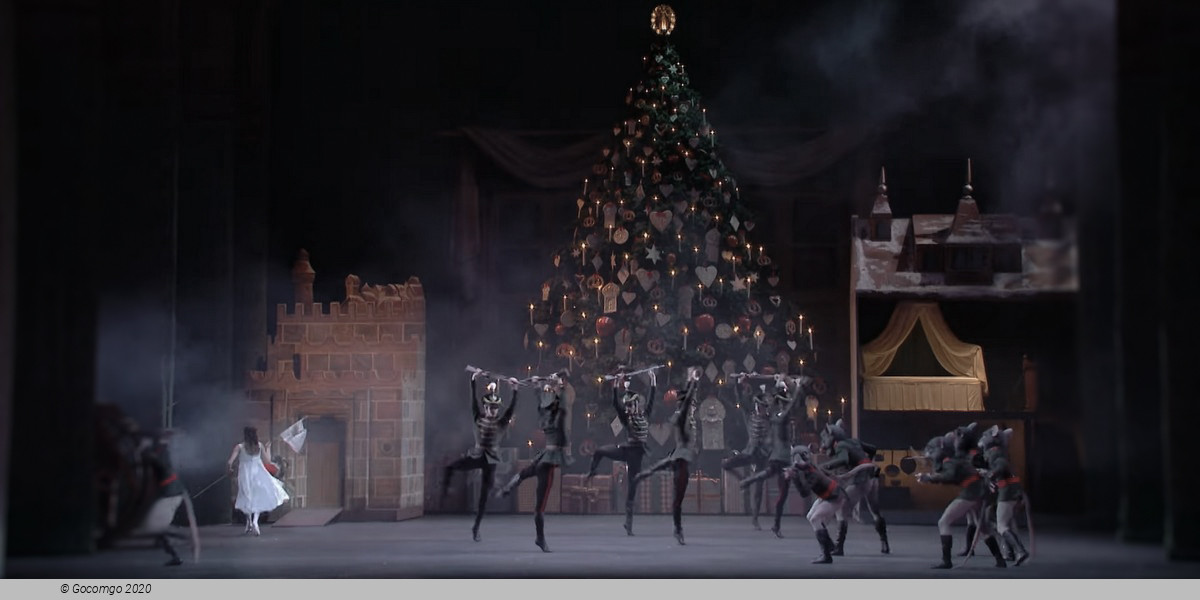
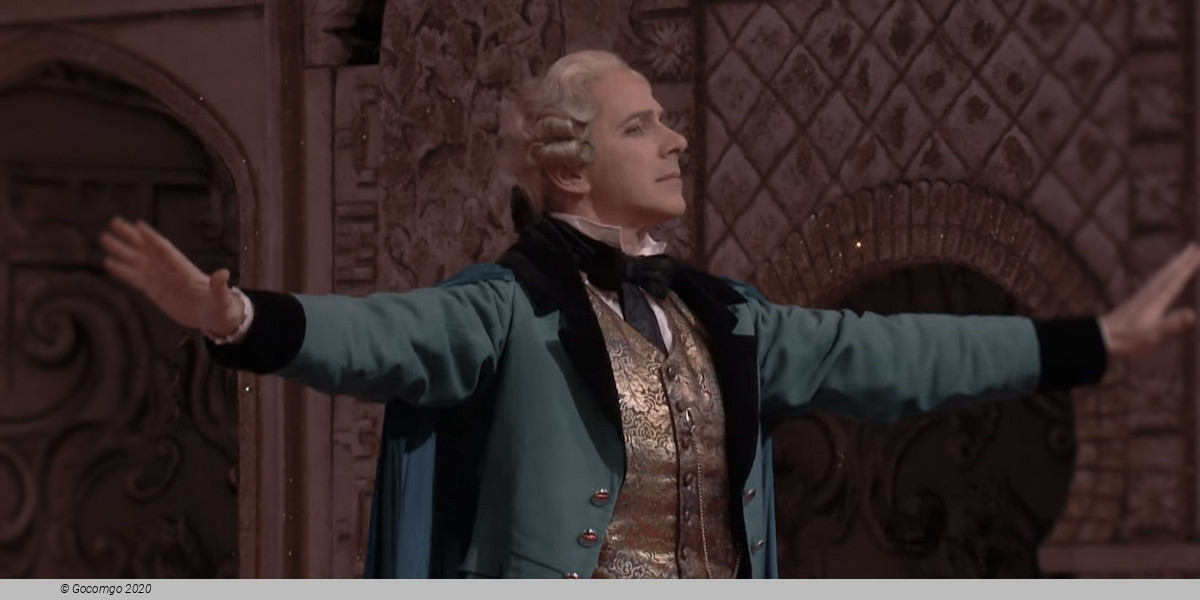
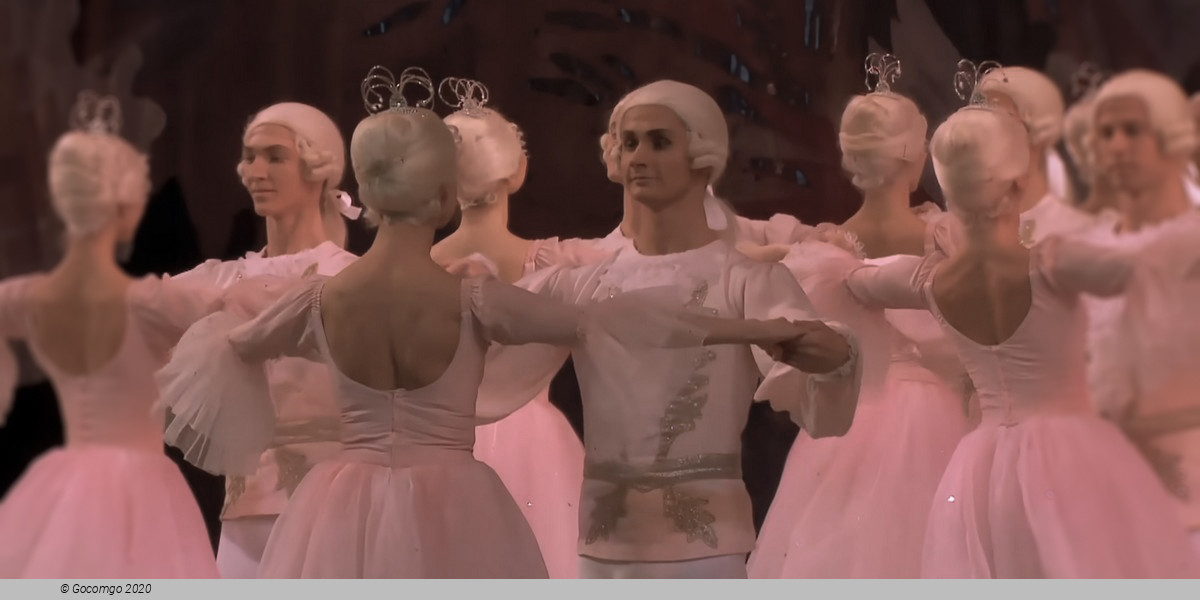
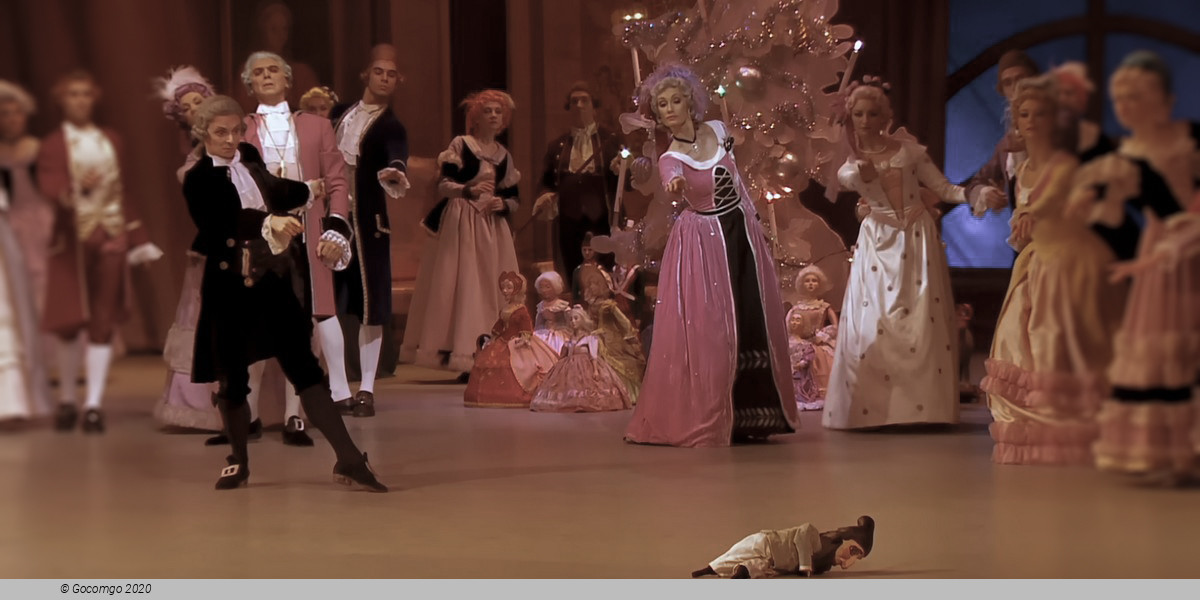
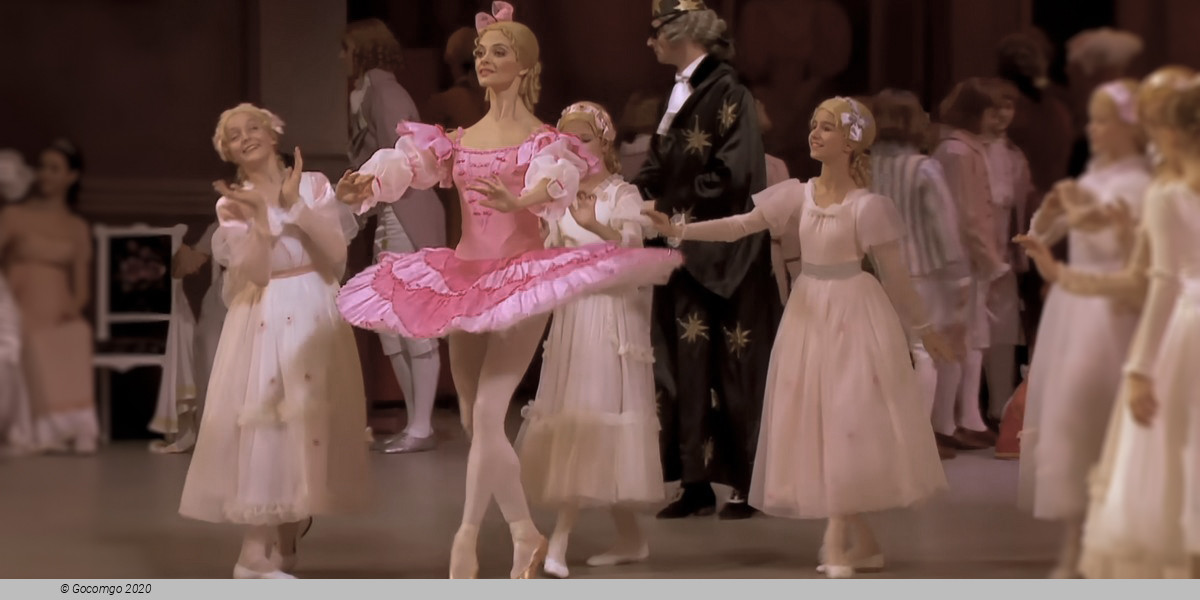
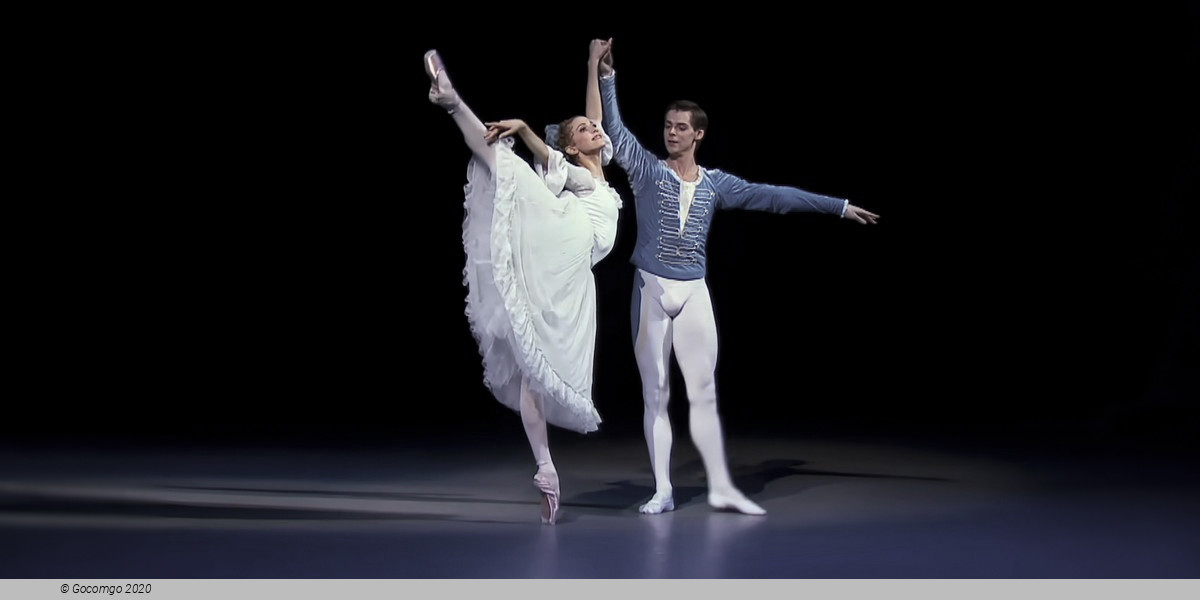
 Theaterplatz 2
Theaterplatz 2